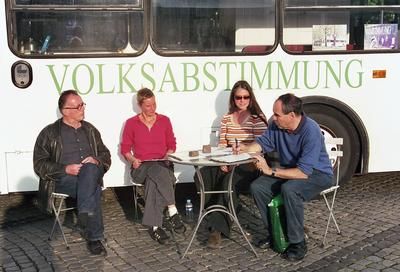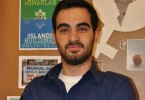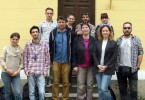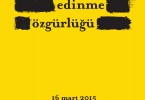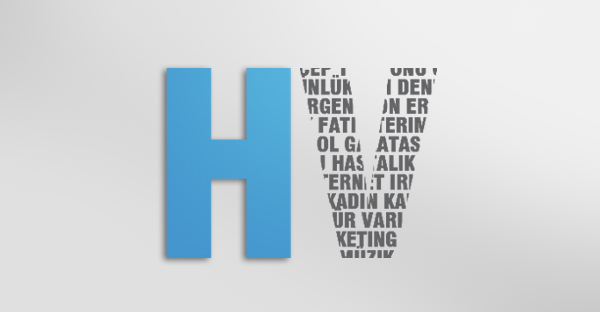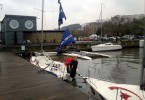Annika Sehn
“The party system is old-fashioned, instead of it there must be an efficient way to voice the questions of individuals,” says Werner Kuppers, the person behind the wheel of the “Omnibus for direct democracy in Germany” that made a stopover at Bilgi’s Santral campus.
Johannes Stüttgen, a close friend of the late German artist Joseph Beuys, and an artist himself supports the activists in the bus with ideas, speeches and discussions.
“We are driving around with an idea. We are campaigning for the realization of direct democracy on all levels,” explains Stüttgen.
The “Omnibus for Direct Democracy in Germany,” as it is officially called, was on a tour of Eastern Europe including Turkey. “Democracy in Motion Tour,” this is how the passengers of the bus call their trip.
The main event on the campus was a workshop with the students taking the course called “City and Art.” Following the workshop there was a free discussion with the people on Democracy in Motion Tour.
“They were very interested and they were well prepared and had their own thoughts and arguments concerning direct democracy,” Stüttgen said afterwards.
To vote just to elect representatives in the legislative assembly is not sufficient for a full democratic system, citizens should be provided with the means to voice their say about concrete issues concerning law and politics, Stüttgen explains. This could be done through popular referendums. Those referendums are already possible in some of the German states. Before a referendum takes place, people have to take initiative and demand that a chance given to them to express their will. A popular referendum is then held on the basis of collection of certain number of signatures and decisions taken in the Bundestag, namely the German Partliament.
This procedure aims at direct access to politics for everyone, was strongly supported by Joseph Beuys. He was the intellectual origin to the idea of the “OMNIBUS for Direct Democracy in Germany” and already in 1971 he founded the “Organization for Direct Democracy through Popular Vote.”
During his whole lifetime, the topic was important to him, since it relates to the concept of “social plastic.” “It basically argues that every human being is an artist and has the responsibility to create his environment,” says Maxi Zurmühlen. She is the tour manager and part of the initiative since the bus stopped at her school when she was eighteen. “It seemed to me that the initiative was authentic from the start and besides, the insistence impressed me. Although it is a rather small group, which depends mostly on donations, it keeps going. During my work I realized again and again how important it is to discuss this topic and I think, we achieved quite a lot already.” The bus has been on the road for 22 years now and the first trip started one and a half years after Beuys death, organized by Brigitte Krenkers, who is still in charge of the organization of the tour. Since then approximately 20 people are working on the initiative and the bus stops in every town, where a popular vote takes place, collecting signatures and informing the people about their possibilities to vote.
In 2000 they supported a popular demand in the state of Thüringen, Germany, resulting in the simplification of the procedure of popular voting and also in Hamburg they helped to achieve a modern electoral law, through the process of a popular vote.
But there’s more behind the initiative. “The revolution we’re going for is a slow process, but we have clear aims: a governmental guarantee for the self-management of the companies and the redefinition of terms like capital, revolution, market and art, because as it is now, the explanations only contain phrases dictated by the predominant power structure”, says Johannes Stüttgen, and further “the medicine for the healing of our society is self-determination.” With this idea the bus hit the road last month for the “Democracy in Motion Tour”, starting at Wiesbaden in Germany. As we learn from their webpage (www.democracy-in-motion.eu), it drove through twelve countries and visited more than 20 cities on its way; among them Sarajevo, Zagreb, Salonica, Athens and Istanbul. The journey, which totaled 8,000 kilometers so far, was initiated by the Goethe Institute Athens, on the occasion of the biennial that took place in the Greek capital. The objective of the tour is to connect politics and art, while discussing topics like self-determination in societies and the Europe of the future.
The man behind the wheel, Küppers, a determined supporter of the project, says that it isn’t just a job for him, but love at the first sight. “The party system is old-fashioned, instead of it there has to be the efficient clarification of individual questions. But we are no missionaries, we also learn while traveling through the countries.” On its way back to Germany the bus passed through Bucharest, Budapest, Vienna and Munich, to name only some of the stops. Concluding a marathon of presentations, workshops and discussions, which, according to Johannes Stüttgen, are important to achieve a change, because “you know revolution takes place in your thinking.”

